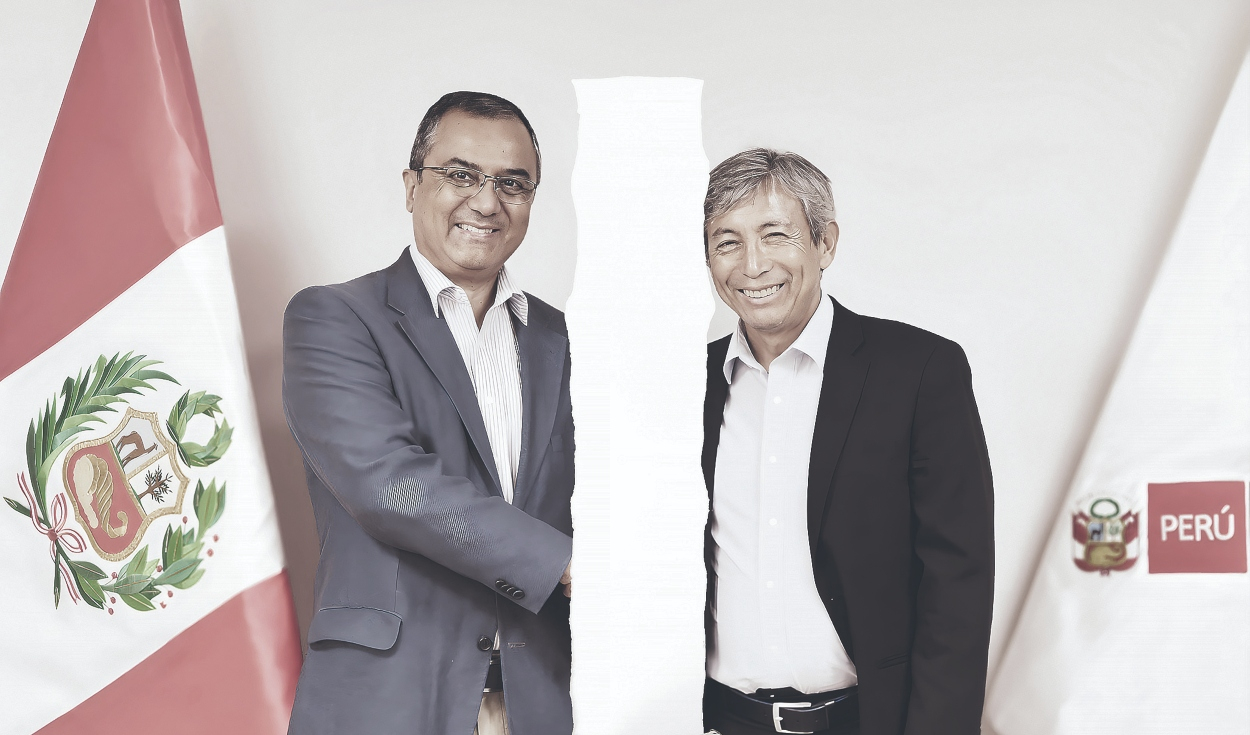
The Dina Boluarte regime attacks, once again, the autonomy and institutionality of public organizations. On this occasion, she removed Carlos Oliva from the presidency of the Fiscal Council, a front that has been evaluating the guidelines in the administration of public resources for 10 years.
According to Boluarte, Oliva cannot continue as president of the CF—attached to the Ministry of Economy and Finance (MEF)—. Sources from La República said that the continuity of the BCRP director should have been defined in December 2023; However, the board opted to extend his stay, and upon requesting it from Boluarte, she considered it appropriate to remove him from the position he had held since the end of 2020.
A premeditated decision
On more than one occasion, The Fiscal Council chaired by Oliva has questioned the breaking of the fiscal rule—during the administration of Alex Contreras—and that there is no clarity about growth projections. Even a few days ago, Oliva assured La República that the MEF has to explain the transfer of S/100 million for the construction of a stadium in Ayacucho, within the framework of the controversy involving the president and the governor of Ayacucho, Wilfredo Oscorima, for the Rolex case.
“If you want to comply with the fiscal rule, then don’t start giving money that you don’t have,” Oliva noted for this newspaper.
Weakening
According to the economist José Távara, the dismissal of Carlos Oliva It comes as retaliation by Dina Boluarte for “carrying out her duties in the Fiscal Council appropriately” and “without turning a blind eye.” “It is unheard of how they are destroying our already weakened institutionality,” she added to this newspaper.
Former minister Luis Miguel Castilla alleges that Boluarte’s will clearly implies a setback because the MEF would not have been heard or considered the technical counterweight carried by the Fiscal Council. He adds that Oliva complied with being the spokesperson for fiscal decisions and it would be a serious mistake to reduce him the role that the CF plays despite its latest statements about Oscorima and Boluarte, as well as the criticism of the issuance of bonds by the Municipality of Lima for up to S/4,000 million—which will put the next five mayors in debt. “His statements about the alleged diversions (of resources) have not gone down well and that is why they do not ratify it,” he stressed.
In this context, it is necessary to specify that the MEF will break with the fiscal rule for the second consecutive year, since the deficit will be greater than 2% of GDP, and with Boluarte’s decision, specialists maintain that the economic institutions are flagrantly transgressed. , as has been happening in other instances, such as the separation of Harvey Colchado from Diviac and the complaint of Rudecindo Vega, dismissed from Conafovicer for “political statements.”
Meanwhile, former minister Pedro Francke considers that the head of the MEFJosé Arista, fires the messenger because he doesn’t like being reminded of his obligations.
“It is a sign of the deterioration of the democratic institutions that the country has been experiencing for a couple of years,” said Francke Ballvé, who assures that it is not known who manages tax policy as the intention of resuming the tax policy is also expressed from another portfolio. benefits to sectors such as agro-export companies.
MEF assures that Oliva’s departure is not due to his criticism
Yesterday in statements after the Council of Ministers, Minister Arista asserted that Oliva’s departure from the Fiscal Council was not due to criticism of the Government.
“His period as president of the Fiscal Council ended on December 31 and due to a natural renewal process it has not been considered for a second three-year period (…) It has nothing to do with a comment (sic) if he had declared for the transfer that was made to Ayacucho . There is nothing illegal about it. “I invite the Comptroller’s Office and the competent authorities to come and review the files to see if there was anything outside the legal framework,” he commented.
Pedro Francke considers that the Boluarte Government is much more oriented towards not respecting fiscal institutions and moves away from responsible management of issues of political pacts in order to obtain the votes of Renovación Popular and “do anything to have their votes in The congress”.
Reactions
Luis Miguel Castilla, former Minister of Economy and Finance
“It is a terrible decision by the Government because the technical counterweight of the CF is weakened. The statements about the alleged diversions (of resources) have not gone down well and that is why they do not ratify it.”
Pedro Francke, former Minister of Economy and Finance
“The Government is much more oriented towards not respecting fiscal institutions and the risk of irresponsibility in this area is growing, there are signs of fiscal mismanagement.”
Source: Larepublica
Alia is a professional author and journalist, working at 247 news agency. She writes on various topics from economy news to general interest pieces, providing readers with relevant and informative content. With years of experience, she brings a unique perspective and in-depth analysis to her work.











